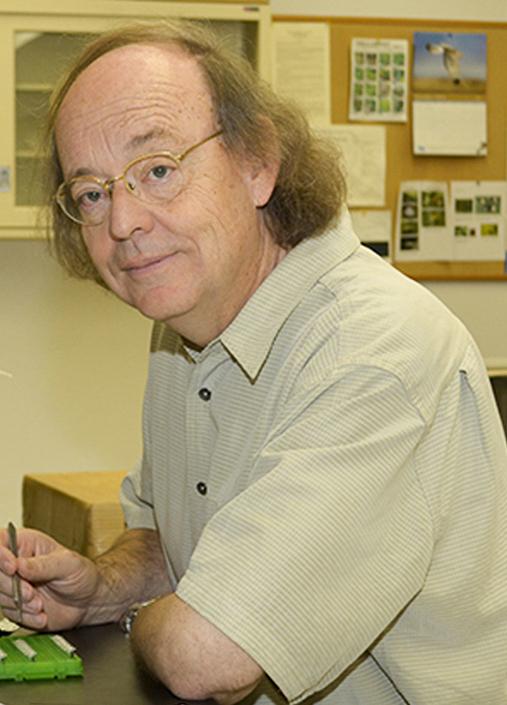
After years of research, breakthroughs and developments, two MU researchers, Dr. Kattesh Katti and Dr. James Birchler, were recently announced as part of the 2014 class of fellows for the National Academy of Inventors.
Birchler and Katti have joined the ranks of 170 inductees worldwide for 2014 and have gained “high professional distinction” for their “highly prolific spirit of innovation,” according to the NAI. The researchers are two of four current fellows at MU, along with Chancellor R. Bowen Loftin and Dr. Hank Foley, professor of chemical engineering.
The NAI Fellows Program currently honors a total of 414 men and women from a collection of over 150 academic, governmental and non-profit research institutions around the globe, according to the Academy’s website.
“It’s an honor,” Birchler said.
Katti said the award is so much more than a title.
“You don’t work for awards, titles and recognition,” Katti said. “It is indeed a great feeling that the global community has recognized the top quality of research being done in my laboratories, my department, within our Medical School, College of Arts and Sciences, School of Veterinary Medicine and (University of Missouri Research Reactor Center).”
Candidates for nomination must have a minimum of one U.S. patent and be elected by their peers for “outstanding contributions” in areas including but not limited to “patents and licensing, innovative discovery and technology, significant impact on society and support, and enhancement of innovation,” according to the Academy’s website.
Katti and Birchler began their work more than 10 years ago, and in that time, they have made strides in the efficiency of both cancer treatment and crop growth, respectively.
The two professors were named to the Fellows Program for distinguished contributions in each of their fields, with Katti being honored for work in radiopharmaceutical sciences, green nanotechnology and nanomedicine. Birchler was honored for his work with biological applications of mini chromosomes in agriculture.
Katti’s research involves placing gold nanoparticles into cancerous cells. These nanoparticles then infiltrate the cells and aid in their destruction.
“We can engineer nanoparticles in sizes that are significantly smaller than cancer cells,” Katti said. “This has allowed us to embed nanoparticles of gold within tumor cells. As these nanoparticles have the ability to destroy tumor cells, we are now seeing selective destruction of cancer cells and tumors.”
It was this discovery that led to the establishment of one of 12 Nanotechnology Platforms for Cancer Research in the nation, which Katti himself directs at MU.
Katti credits the aid of his collaborator Carolyn Henry, professor of oncology in the department of veterinary medicine and surgery at MU, who helped discover the presence of these aforementioned gold nanoparticles in sample vials that had been left in a laboratory at MU.
Birchler’s laboratory works primarily with corn genetics and the creation of synthetic, mini chromosomes, which can, through genetic manipulations, be made to grow to set specifications, he said.
“The potential application of this is that it is a technology that will allow new properties to be conferred onto plants,” Birchler said. “These could be new properties for insect or fungal or viral resistance or drought tolerance and, as we go forward, a number of potential properties could be added to this chromosome that would be beneficial for crop agriculture.”
Katti, Birchler and the other Fellows will be inducted on Mar. 20 during the Academy’s conference at the California Institute of Technology in Pasadena, California, according to the Academy’s website.